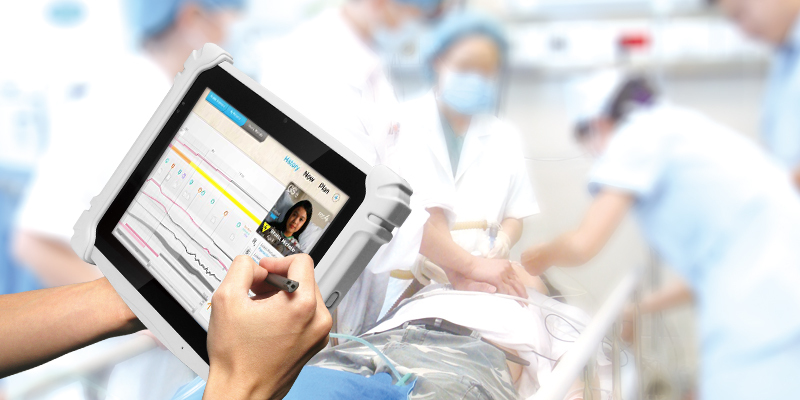Medical Industry
How Mobile Technology in Healthcare
Whether it's for patient safety, cost efficiency, or access, adding mobile technology to the medical practice can make a huge impact on productivity, patient care, and outcomes. This is particularly true for practices with patients who live in rural areas or in remote communities or who have trouble getting to an office. The following are some of the reasons that adding mobile technologies to the practice is beneficial. Here are just a few.
Consumers are increasingly technology-savvy. They have higher expectations and are more engaged in their own care. They are more likely to use mobile technology than ever to stay abreast of emerging trends. While only a handful of healthcare organizations are using Mobile Technology in Healthcare to improve patient care, nearly a quarter are experimenting with it. In addition to improving the quality of patient care, the use of Mobile Technology in Healthcare is improving back-office operations and medical training.
During a hospital emergency, a responder can use a Rugged handheld device to navigate to the scene of an emergency. Once there, they can collect a detailed status report and transmit it to the hospital or central law enforcement station. Mobile Technology in Healthcare brings vital information to the point of care, so clinicians don't have to miss critical information. In addition, every clinician has access to the same accurate data, so decisions are not based on out-of-date or incomplete information. These benefits have led to improvements in the accuracy of prescriptions and orders, allowing nurses to ensure that the right drugs are prescribed for the right patient.
The use of mobile technology is changing healthcare in many ways. For example, wearable biosensors can alert practitioners of cardiac arrest. It can also increase the accuracy of clinical decisions and increase response times. With mobile technology, clinicians can harness EHR data, secure messaging, and real-time lab results through Rugged handheld mobile devices. These innovations are improving patient care and improving back-office operations, and the costs of health care delivery.
Another benefit of mobile technology in healthcare is its integration with hospitals' electronic health records (EHR). This means that clinicians can access patient data while they're away from the patient. The same data is available to them on the phone. This means that each clinician is working with accurate, current, and consistent data. As a result, healthcare is becoming more efficient. With mobile devices, doctors and nurses can text patients securely, share information and manage their wellness.
In a hospital, m-health apps can improve workflow and reduce errors. For instance, rugged tablets can make it easier for healthcare workers to collect patient samples while reducing the need to carry heavy devices. This allows them to improve the patient experience and reduce long wait times. Because they are more portable than a laptop or a desktop computer, rugged tablets are easy to use in smaller waiting rooms and on the floor. Moreover, m-health applications are improving patient safety.
The healthcare industry is undergoing transformation. The use of mobile devices in healthcare will make patient care more accessible and cost-effective. For example, drive-through testing sites are being built all over the country. These locations are designed to save time and money and provide convenience to patients. Furthermore, m-health applications will help healthcare workers collect data and report results accurately. And, the use of rugged tablets will improve efficiency. Aside from that, m-health apps will be used in emergency rooms and hospitals.
The use of mobile devices is changing the way healthcare professionals work. For example, many mobile health apps have been developed that will enable healthcare professionals to interact with patients while in the field. In addition, healthcare providers will be able to use medical software and smartphones to collect medical data. They will also be able to use them to make more informed decisions about their patients' care and better understand their condition. An m-health app will improve patient safety and efficiency and improve the experience of everyone who uses it.
As the healthcare industry grows in size, the use of mobile technology in healthcare will continue to grow. Health systems and health provider organizations will invest in rugged tablets, which are rugged and designed to withstand the elements of rough environments. These devices will not only help healthcare workers perform their jobs more efficiently, but they will also help improve patient safety. By providing accurate information, m-health solutions will increase the value of care. The cost-effectiveness of m-health services will be increased.
0users like this.


